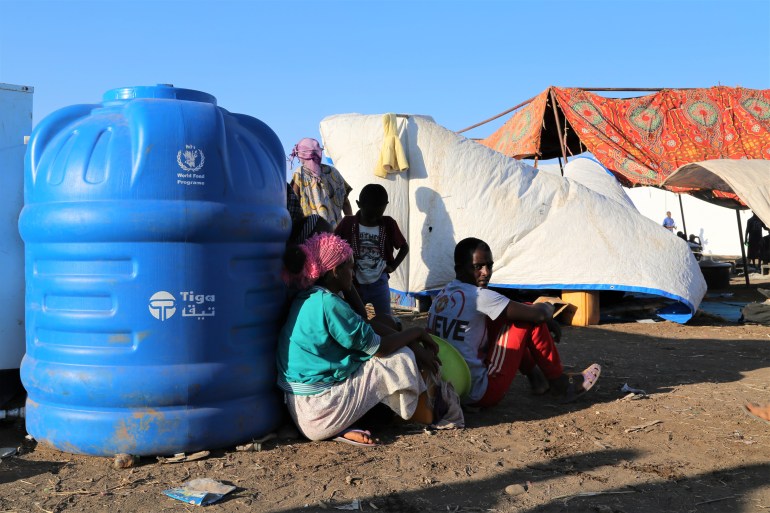While the country has witnessed double-digit growth in recent years, the conflict in the Ethiopian province of Tigray has raised the concerns of tourists and the worries of donors and investors.
In a report published in the French newspaper Le Monde, writer Noi Hochet Bowden said that the conflict in Tigray, which has pitted the federal government against the breakaway party of the Tigray People's Liberation Front since November 4, has significantly affected tourism sector.
He indicated that this sector contributes 10% to the gross domestic product of Ethiopia, and employs more than two million people.
Because "about 85% of its flights pass through Tigray," Jared Mulugeta, director of the Moon Bay Tour travel agency in Addis Ababa, was forced to cancel everything.
Thanks to the remains of the Kingdom of Aksum and the many Orthodox monasteries, the Northern Province is the preferred region for travel agencies as it contains the main attractions for foreign visitors.
Industry professionals are concerned at the moment about the clogging horizon, as tourists scheduled to arrive in early 2021 cancel their reservations due to security risks.
On the other hand, commercial trips to the governorate and its surroundings gradually resumed after Prime Minister Abiy Ahmed's visit on December 13 to Mekele, the capital of Tigray, which was controlled by the federal army earlier this month, and Abiy Ahmed confirms that the military operation has already ended, thus It leaves room for an interim government that is supposed to repair the damaged infrastructure.
According to diplomatic sources, while the Ethiopian army and the Amhara militia are in control of all Tigray towns, fighting continues in the area, and the leaders of the Tigray People's Liberation Front withdrew in early December.
But they confirmed that they wanted to fight "to the death" from high in the mountains, raising fears of a prolonged guerrilla war.
For its part, the federal forces, which are fighting to expel them, are offering a reward of 210,000 euros to anyone who can help find the militants.
The Ethiopian army and Amhara militia control all Tigray towns and fighting continues (Reuters)
The European Union suspends aid
As the hunt continues, the authorities are trying to reassure economic partners, and some are concerned about their future working conditions, especially the completely new industrial zone in Mekele, where there are textile companies, and some of their employees were laid off at the beginning of the conflict, and development aid institutions invested in infrastructure projects in Tigray expressed her frustration at the lack of information and cooperation on the part of the authorities over the past month.
For his part, an Ethiopian economist, who preferred to remain anonymous, said, “This process will leave traces and spoil the bonds of confidence with partners and international organizations. Winner of the Nobel Peace Prize two years ago. "
"We should consider the suspension of this aid as a very worrying sign," says economic analyst Alyssa Strobel, and the prime minister said on November 30 in the halls of parliament at the time, "No one can put financial pressure on Ethiopia, no matter how poor we are, we will not give up." Never about our pride. "
If Ethiopia has seen double-digit growth in recent years, it remains highly dependent on international financing.
In 2019, it received aid worth 8 billion euros from Western donors, the International Monetary Fund and the World Bank, to support the economy weakened by the Covid-19 epidemic.
This year, the government still expects growth of 6%, while the International Monetary Fund estimates it at 1.9%.
Addis Ababa received aid worth 8 billion euros from Western donors, the International Monetary Fund and the World Bank in 2019 (European)
Progressive editing
Ethiopia ranked 159th in the World Bank's "Doing Business" classification on business climate, and it aroused the interest of many private sector investors when it announced its gradual liberalization, and with the prevailing traditions, it promised to open the sectors monopolized by the state to investors, such as logistics and energy Banking, telecommunications and air transport, in addition to Ethiopian Airlines.
Despite this ambitious program, there is one project already on the table today;
It is represented in the partial privatization of "Ethio Telecom", which is expected to be about 40% of its shares to two foreign companies, but the timing is not suitable enough for the Ethiopian force, as Tigray slowly regains its powers due to the interruption of telecommunications that lasted for more than 40 days, and both parties deny Causing it.
In this context, an Ethiopian economist said, "Investors have become accustomed to this kind of risk," adding that the privatization process should not be disrupted by the war.
On the other hand, the timetable assumes that the telecom companies are likely to be in a strong position to lower prices during negotiations, and the expert reassured that if the conflict distorts the image of the country, this will not be an obstacle for the partners.
However, foreign investment funds do not share this opinion, after their bank accounts were frozen along with the accounts of 34 Ethiopian companies affiliated with the Tigray People's Liberation Front. Moreover, the Ethiopian prosecutor accused them of "financing ethnic conflicts and terrorist activities."

